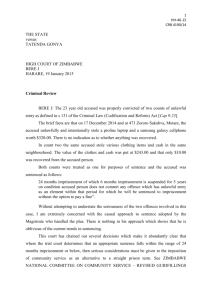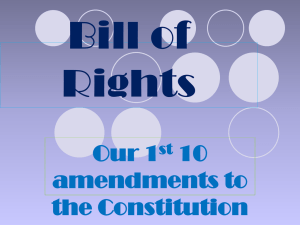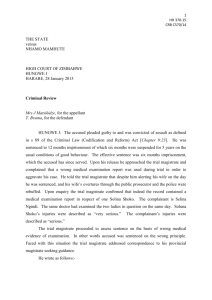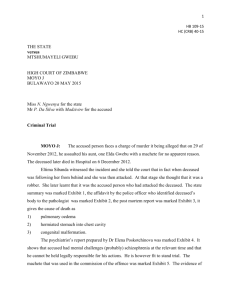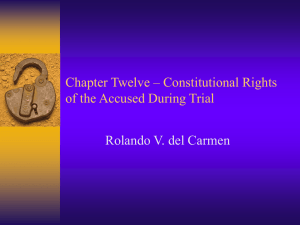RTF format
advertisement
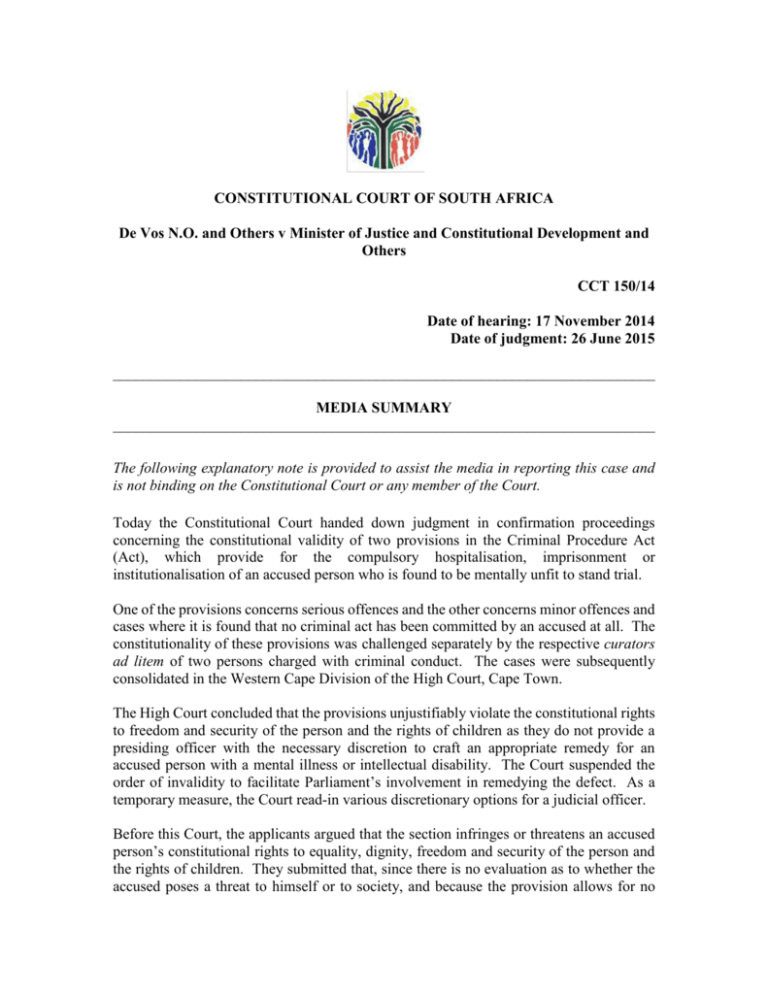
CONSTITUTIONAL COURT OF SOUTH AFRICA De Vos N.O. and Others v Minister of Justice and Constitutional Development and Others CCT 150/14 Date of hearing: 17 November 2014 Date of judgment: 26 June 2015 ________________________________________________________________________ MEDIA SUMMARY ________________________________________________________________________ The following explanatory note is provided to assist the media in reporting this case and is not binding on the Constitutional Court or any member of the Court. Today the Constitutional Court handed down judgment in confirmation proceedings concerning the constitutional validity of two provisions in the Criminal Procedure Act (Act), which provide for the compulsory hospitalisation, imprisonment or institutionalisation of an accused person who is found to be mentally unfit to stand trial. One of the provisions concerns serious offences and the other concerns minor offences and cases where it is found that no criminal act has been committed by an accused at all. The constitutionality of these provisions was challenged separately by the respective curators ad litem of two persons charged with criminal conduct. The cases were subsequently consolidated in the Western Cape Division of the High Court, Cape Town. The High Court concluded that the provisions unjustifiably violate the constitutional rights to freedom and security of the person and the rights of children as they do not provide a presiding officer with the necessary discretion to craft an appropriate remedy for an accused person with a mental illness or intellectual disability. The Court suspended the order of invalidity to facilitate Parliament’s involvement in remedying the defect. As a temporary measure, the Court read-in various discretionary options for a judicial officer. Before this Court, the applicants argued that the section infringes or threatens an accused person’s constitutional rights to equality, dignity, freedom and security of the person and the rights of children. They submitted that, since there is no evaluation as to whether the accused poses a threat to himself or to society, and because the provision allows for no discretion, the deprivation envisaged is far-reaching, arbitrary and without just cause. The respondents maintained that the matter was not ripe for hearing. They also argued that the provisions are consistent with the Constitution and South Africa’s international law obligations. They submitted that the provisions protect broader society and ensure the proper treatment and care of persons with mental illness or intellectual disabilities and are therefore rational. Cape Mental Health, who made submissions as a friend of the court or amicus curiae, argued that mental illness is complex, the mentally ill are not necessarily violent and individual capacity for violence should be assessed before a court orders hospitalisation or institutionalisation. They specifically asked this Court to rule that imprisonment is always inappropriate as the purposes of the provisions are never to punish an accused. In a unanimous judgment written by Leeuw AJ, this Court found the provision dealing with serious offences to be inconsistent with the Constitution and invalid to the extent that it provides for compulsory imprisonment of all accused persons and compulsory hospitalisation of children. Presiding officers should be afforded a discretion when dealing with children so as to ensure that detention is undertaken as a last resort and for the shortest period possible. However, the Court found that the mandatory hospitalisation of adult accused persons is rational as a precautionary measure to guarantee the care of the accused and the safety of society. The Court held that the second provision is constitutionally invalid as it prescribes that an accused person who has committed no act or a minor offence be institutionalised, regardless of whether they are likely to inflict harm to themselves or others and do not require care, treatment and rehabilitation in an institution which violates their freedom and security of the person. The Court suspended the order of invalidity in respect of the compulsory imprisonment of adults and the compulsory hospitalisation and imprisonment of children for a period of 24 months to allow Parliament to remedy the defects. The order does not operate retrospectively.

